At the beginning of the 20th century it was still unusual – and viewed as being rather indecorous – for women to make speeches at elections. Dorothy Hunter, in her early 20s, burst onto the scene as a ‘girl orator’ on behalf of the Liberal party and Women’s Suffrage.
Dorothy Hunter was a young and highly intelligent woman who as a member of the Liberal Association. She spoke for the Liberal Party on Women’s Suffrage and Free Trade, and was considered ‘one of the foremost lady speakers of the day’. As a suffragist, Dorothy aligned herself with the views of the National Union of Women’s Suffrage Societies (NUWSS) chaired by Dame Millicent Fawcett, who believed that women’s enfranchisement could be gained through a non-confrontational, peaceful approach and by intelligent reasoning and education. Although Dorothy spoke well of the suffragettes individually, she disassociated herself from their ‘deeds not words’ approach and their increasingly militant and violent methods.
Born on June 28, 1881, in Putney, Dorothy Mary Hunter was the youngest of three daughters of Sir Robert Hunter (1844-1913) and his second wife Ellen (nee Cann 1851-1932). Sir Robert was appointed Solicitor to the General Post Office in 1882 and was a champion of the open spaces movement, co-founding the National Trust with Octavia Hill and Canon Hardwicke Rawnsley, in 1895.
The family resided in Haslemere, where Dorothy and her sisters, like many young women of their class and social standing, were educated in the family home by a governess. Influenced by the social reforming values of her parents, Dorothy developed a keen interest in politics at a young age, joining the Liberal Association where she was quickly proposed as a member of the Executive.
Intelligent and highly articulate, Dorothy entered into correspondence on fiscal and Free-Trade matters with Sir William Henry Cowan, the Liberal and Free-Trade candidate for Guildford in the 1906 General Election – he remarked that she was developing “a keen and intelligent interest in questions regarding which I think every Englishwoman should form definite opinions”.

Fuelled by her acute sense of social justice, Dorothy began to speak publicly for the Liberal Association on social issues. She toured a Birmingham factory in 1905 and accepted invitations to tour firms and address Church meetings where she spoke on subjects that especially appealed to women such as ‘temperance reform, the need for a minimum wage, infant mortality and the scandal of sweated industries’.
Naturally, Dorothy embraced the cause for women’s suffrage, arguing that Government could not govern for the benefit of society, unless all sections of the community were represented.
By the age of 23, Dorothy had gained the reputation as an authoritative speaker on Free-Trade and the enfranchisement of women, who “could not fail to throw light on any subject”.
Dorothy’s appeal as an eloquent female speaker had already drawn much admiration and support from other politically motivated women such as Ethel Becker, who wrote to Dorothy “to express my admiration of your spirit” and rejoicing that “we have you on our side” but also the fact that “you are a woman and you set an example to our sex”.
Dorothy’s reputation as a charismatic speaker was brought to the attention of the wider public however, following her heckling of W St John Broderick, the Conservative MP for West Surrey and Secretary of State for India. Dorothy’s intelligent and incisive interruption of Broderick during the 1906 General Election campaign was thought among supporters of the Liberal Association to have greatly contributed to Broderick losing his Parliamentary Seat in a Liberal landslide.
Broderick, later 1st Earl of Midleton, had held the seat since its creation in 1885 and had been Secretary of State for India in the preceding Conservative government.
C P Herbert wrote to her father: “I had heard of Miss Dorothy’s successful heckling, but I had never ventured to hope that they would result in the route and expulsion of Broderick. Please give her my heartiest congratulations.”
Dorothy’s derisive heckling was covered in the national press, including The Manchester Guardian and The Daily Express, prompting letters of congratulations and gifts of pressed flowers and woven hearts sent to Dorothy ‘in admiration’.
Millicent Fawcett was amongst those who wrote to Dorothy congratulating her on her success. Realising that Dorothy’s reputation as a speaker was an asset to the cause for women’s suffrage, Millicent wrote to her enclosing “a little collection of pamphlets” and telling her “I am so very glad you are taking up suffrage work” and acknowledging “I feel you will be a very great help to us”.

She also advised Dorothy to read John Stuart Mill’s On Liberty and The Subjection of Women and recommended The Tribune as “the best paper for WS”. Millicent maintained in a letter to Dorothy that the NUWSS “should stick to our formula; ‘the suffrage for women on the same lines on which it is or may be granted to men’”. Failing to do so would “split our own party and all involved in endless difficulties”.
Having “won her spurs at the defeat of Mr Broderick” and encouraged by Millicent, Dorothy travelled throughout the country from Gateshead in the North East to Plymouth in the South West, championing the cause of women’s suffrage along NUWSS principles on behalf of the Liberal Women’s Association and speaking on Free-Trade and social reform on behalf of The Women’s Free-Trade Union.
At many of these meetings “she attracted large gatherings” and was often “received with a great outburst of cheering”.
As “a clever and charming young speaker”, her talks not only appealed to women but also to a male audience, many of whom were “working men and city clerks” who were prepared to listen even “under dripping umbrellas to the voice of Miss Dorothy Hunter expounding the principles of women’s suffrage”.
By February 1907, Millicent was not only personally recommending Dorothy as a speaker on women’s suffrage, she also wrote to her suggesting that she apply for the position as Secretary of the Central Society for Women’s Suffrage, a constituent society of the NUWSS. This position came with a salary of £120 per annum plus expenses, approximately £36,250 today, a relatively huge salary for a woman at this time.
Although Millicent’s proposal indicates how highly Dorothy was regarded within the NUWSS, her papers do not suggest that she did apply for the role. Instead she continued to speak publicly on Free-Trade and social issues in addition to advocating women’s suffrage.
Dorothy’s Liberal principles and membership of the Liberal Association governed her public speaking career. She made several speeches on women’s suffrage alongside Walter JB McLaren, the Liberal MP for Crewe who, together with his wife Eva Muller, was a leading proponent of women’s rights. McLaren and Dorothy both stressed “the economic value of women obtaining votes” and that women’s suffrage “was a matter of justice in harmony with Liberal principles”.
Dorothy also worked hard for Bertrand Russell, the “suffragist and Free-Trade” Liberal candidate in the 1907 Wimbledon by-election. Implored by Millicent Fawcett “to come without being paid at all and give us your help at this important moment”, Dorothy spoke on both women’s suffrage and Free-Trade during Russell’s campaign. The aim of the suffragist supporters was to prevent “the unopposed return to Parliament of a confirmed opponent of women’s suffrage”.
Although Russell was defeated, only polling 25 per cent of the vote, the campaign was considered a success by his supporters. The campaigners noted that the attitude towards women’s suffrage was beginning to change with women speakers being listened to “with respectful attention, and jokes and sneers almost entirely ceased”.
Dorothy Hunter is one of the many unsung heroines of the suffragist movement.
Historically, the suffragette movement has received more recognition in the campaign for women’s suffrage than the suffragist movement.
Modern historians have argued that not enough credit has been given to the influence of the NUWSS, whose membership remained high throughout this period.
The suffragist movement undoubtedly benefited from Dorothy’s intelligence, charisma and ability as a public speaker to promote the cause of women’s suffrage to a wider audience of both women and men.
Dorothy’s uncompromising belief that the question was not whether the franchise would come to women but when, establishes Dorothy Hunter as a prime example of a suffragist at the beginning of the 20th century. Her demand for fairness and equality and her persistent campaigning for women’s suffrage undeniably contributed to the Representation of the People Act in 1918 which granted the vote to some women over 30 and which was extended to all women over 21 in 1928.
Contributed by Helen Jones, ‘The March of the Women’ project volunteer
Article and photos shared courtesy of the Surrey History Centre
Marked annually on March 8, International Women’s Day (IWD) is a global day celebrating the social, economic, cultural, and political achievements of women.
The day also marks a call to action for accelerating gender parity. Significant activity is witnessed worldwide as groups come together to celebrate women’s achievements or rally for women’s equality.
Find out more online at www.internationalwomensday.com
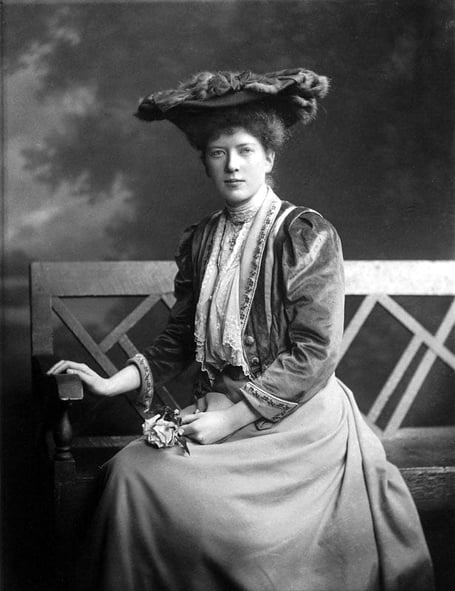
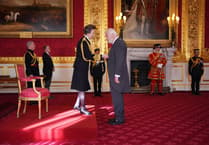
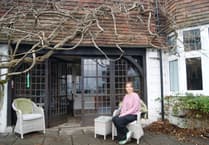
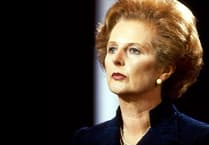
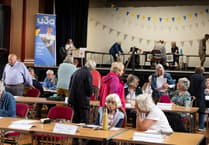
Comments
This article has no comments yet. Be the first to leave a comment.